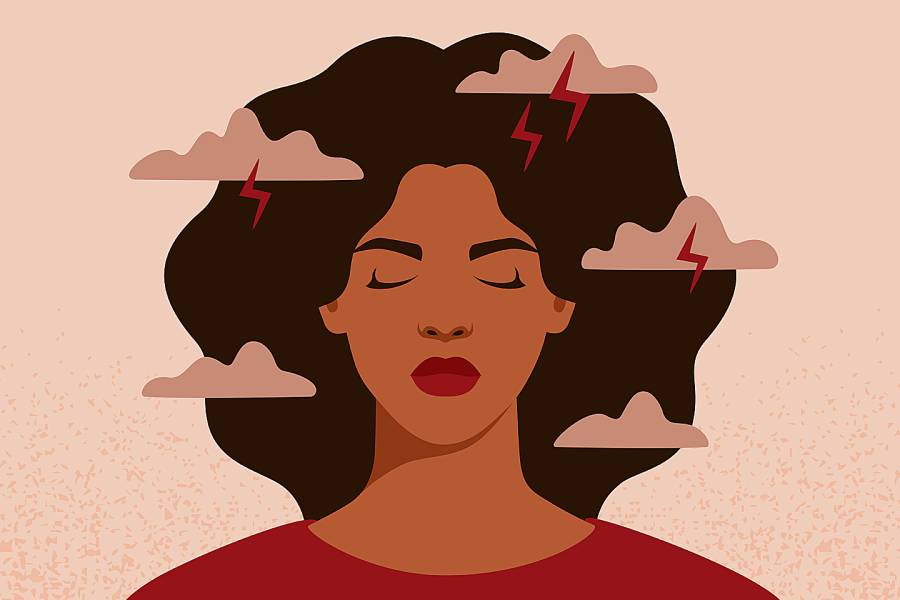This content is provided to Johns Hopkins employees through a partnership with mySupport, JHU Wellness Programs, and Resources for Living.
October is Depression Awareness Month, and Johns Hopkins faculty, staff, and their household family members may be especially impacted by depression this year as the global pandemic continues.
Depression is a real illness and can wreak havoc on your life, job, relationships, and more. Johns Hopkins mySupport wants to remind you there is help for people who have depression. There are several treatment methods, including talking to a counselor and taking medication prescribed by a professional. Exercise, healthy eating, and learning to change your thought processes are other effective strategies. mySupport counselors are available 24/7, 365 days a year, to assist with emotional support and daily life assistance. To reach a counselor, call 443-997-7000, option 2.
In addition, the university is offering a wide range of depression-focused resources including webinars, videos, articles, and online screening tools.
Webinar for managers (meets CDC Scorecard requirements)
Helping Managers Recognize and Respond to Depression in the Workplace
Relationship or work challenges, grief and loss, and local or national crises can leave us feeling blue. This sadness is a normal part of the human experience. When a range of other symptoms accompany the sadness and last for weeks instead of days, the "blues" may have developed into clinical depression. Depression often impacts multiple areas of life, including productivity and behavior at work. Join a mySupport clinician from 3 to 4 p.m. on Wednesday, Oct. 20, to learn about depression, its impact on the workplace, and how managers can help employees whose work performance may be affected by it. Register here.
Webinars for ALL on understanding and managing depression
Understanding and Treating Depression
Clinical depression is a medical disorder that affects approximately 11 million American adults each year. Join a mySupport clinician from noon to 1 p.m. on Thursday, Oct. 21, to learn about the risk factors, signs, and symptoms, as well as effective treatment options for you or someone you care about. Register here.
What resources are available to me, my family, my co-workers, and my team?
MyStrength app
Click here to access the myStrength portal using the access code JHU or JHHS. This app has a mood tracker and evidence-based modules for mood and anxiety management.
Articles, videos, and resources on depression
Click here for articles on depression, depression resource center videos, and information on the Depression and Bipolar Support Alliance, Anxiety and Depression Association of America, and other organizations. Use the access code JHU or JHHS.
Articles, videos, and resources on suicide and how to help someone who's having suicidal thoughts.
If you or someone you know is in crisis, you can reach out to mySupport or the National Suicide Prevention Hotline at 800-273-TALK (8255). Click here for articles to help understand and prevent suicide, the suicide resource center, and additional national suicide resources. Use the access code JHU or JHHS.
Talk Saves Lives training
Talk Saves Lives is an online tool designed to help you understand depression and suicide and know its warning signs. Then you can start the conversation. Click here to start the training. Use the access code JHU or JHHS.
Online depression screening
Depression is more than feeling sad or blue. Real depression gets in the way of you being you. It can stem from family history, a life event, a health condition … or no reason you can understand. Whatever the cause, depression is treatable. And you've got support along your journey.
If you are ready to check in on how you are feeling, try the depression assessment. It's just 10 simple questions to help you tune in to your feelings. Click here and use the access code JHU or JHHS to get started. Following the assessment, contact mySupport to connect with an on-site clinician by calling 443-997-7000, option 2, or schedule an appointment online.
How can I get emotional support for myself or a family member immediately?
To receive emotional support in the moment, call 443-997-7000 and press option 2. You will be connected to a clinician who will provide free and confidential emotional support and can help you identify resources and next steps.
What if I am a manager concerned about a member of my team or my whole team?
Click here for information on consulting with a mySupport on-site clinician, referring employees to mySupport directly, making a referral, informal referrals, and crisis response services.
Any other suggestions?
Get moving with BurnAlong. Sign up for your free account today. Movement releases endorphins and increases mood. BurnAlong offers a variety of live and on-demand fitness and emotional support classes for you and your family such as Yoga for Depression. And the best thing about BurnAlong is that you can work out with your family and co-workers. Working out in community is a great tool for prevention and for managing depression. If depression is a result of a chronic condition, you also can find classes to support you in managing it. Email wellnessprograms@jhu.edu with questions.
Posted in Health+Well-Being
Tagged hr newswire








